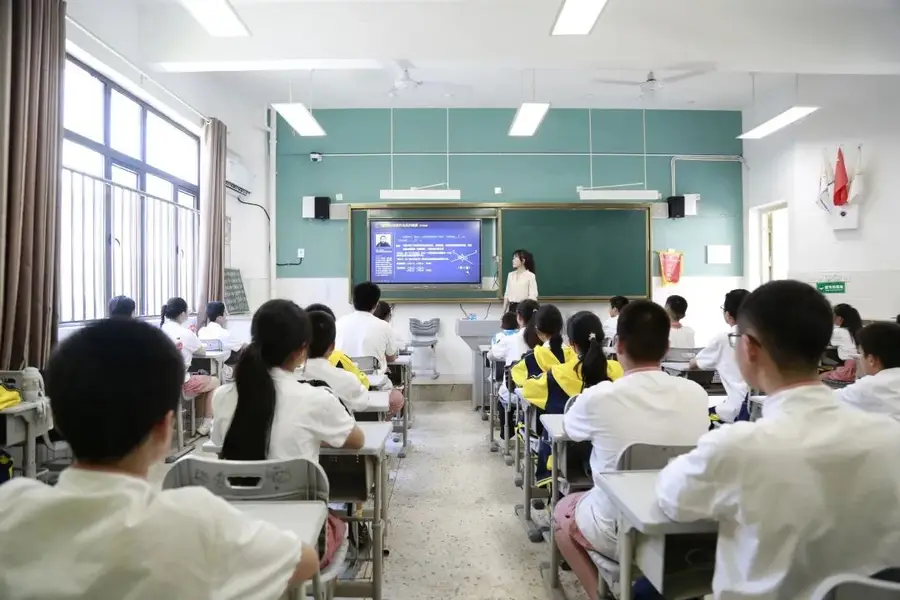Ruanyun soars as China edtechs learn to live in new environment

The company’s AI-based homework and testing apps and 15.1 million users have helped it to stand out from rivals, though the stock looks expensive after a strong post-IPO rally
Key Takeaways:
- Shares of edtech company Ruanyun jumped up to 80% in their first week of trading, after the company raised $15 million in its Nasdaq IPO
- The maker of homework and testing apps may have saturated its home market in Jiangxi province, and will need to expand nationally to maintain its rapid growth
By Edith Terry
After a chilling crackdown that wiped out dozens of companies overnight, China edtech is suddenly roaring back. While some companies are thriving on adult education and other areas still allowed post-crackdown, others are feasting on government-fueled growing demand from schools for more AI technology and content.
Last December, the country’s education minister declared AI was the “golden key” for the country’s educational system. Squirrel AI, the largest of the AI edtech companies, has raised $180 million and opened 2,000 learning centers across China and plans to open 2,000 more. Its rapid growth has pushed its value above $1 billion, making it an edtech “unicorn.”
A smaller company finding a comfortable spot in the emerging AI edtech space is Ruanyun Edai Technology Inc. (RYET.US) whose shares shot up over 80% in the first week after the company’s April 8 IPO on the Nasdaq, which raised a modest $15 million. The shares have held most of the gains since then, despite recent market volatility, and were up about 50% from their $4 listing price at Wednesday’s close.
Despite its strong debut, Ruanyun looks like a risky bet in many ways. Its cash flow is negative, it has just two major customers, down from a previous three, and its revenue fell sharply in its latest reporting period. The $15 million should help to cover the company’s ongoing losses and negative cash flow, as it searches for a path to sustainability.
Ruanyun specializes in tech for primary and secondary school students, or K-12, which was the focus of the regulatory shift that wiped out an entire industry when the Ministry of Education banned after-school tutoring for profit in 2021. While private companies are banned from directly offering such services to students, they are still allowed to provide products and services to schools and government-owned institutions that provide services to schools, which is what Ruanyun does.
The company’s customers are almost entirely in Jiangxi, an inland, less affluent province with an economy roughly the size of Norway. Co-founders Fu Yan and Zhao Cong are both alumni of Indiana University and veterans of a since-failed New York-based adtech firm, IgnitionOne.
The pair established Ruanyun in 2012, branching into AI databases and paperless testing centers in 2017 and customized homework exercise books in 2020. The company’s most recent revenue and profits aren’t exactly inspiring. Its revenue was flat in its fiscal year through March 2024. But then it suddenly dropped 35% to 4.1 million yuan ($561,000) in the six months to last September, the first half of its fiscal year, from 6.3 million yuan a year earlier, as it blamed a change in its marketing strategy.
Meantime, its net loss widened in the fiscal year through March 2024, but then fell considerably to 680,000 yuan in the six months through last September from 1.5 million yuan a year earlier.
Ruanyun’s two main products are its SmartHomework system and SmartExam platform. SmartHomework relies on a company database with 10 billion data points generated by 15.1 million students from 16,700 schools, 80% in Jiangxi, to provide exercise books customized for each student. The market for such personalized homework books was worth about 80 billion yuan in 2022, according to internal company estimates.
Bigger buyers
After the government crackdown on after-school tutoring, Ruanyun had to start selling its products to schools and other authorized government institutions rather than directly to students. It now supplies those large buyers with its core products, along with AI learning centers, including tablets and printers.
Its SmartExam product covers all 11 subjects in the gaokao, China’s national college entrance exam. Ruanyun also develops test contents and computerized testing centers, facial recognition cameras and hardware designed to keep students from cheating.
Despite its relatively strong positioning, the company’s performance has been somewhat volatile, as reflected by its falling revenue. In 2020, Ruanyun built nine testing centers in Nanchang, Jiangxi’s capital, and 58 more sites from 2020 to 2022. But only one new site was completed between 2022 and March 2024.
In the six months through March 2024, two major customers accounted for a combined 70% of total revenues, down from three major customers that accounted for a combined 80% in the fiscal year through March 2023. That shows that a diversified revenue stream is not one of the company’s strengths, reflecting its reliance on selling to just a handful of large customers in a single province.
In December 2020, Jiangxi Xinhua Distribution Group Co. Ltd made Ruanyun a strategic business partner, providing students in the province with standard subscriptions for the company’s personalized exercise books. But paying users for these fell from 26,900 in the year to March 2023 to 20,200 in the 12 months to March 2024. Still, registered members increased from 14.3 million to 15.1 million over that time, providing an important resource by contributing data for use in the company’s AI database.
Nearly 60% of the company’s revenue in the year through March 2024 came from digitization services, paid by publishers for converting publications to digital format, with the figure growing from $4.5 million in the year to March 2023 to $5.2 million in the next fiscal year.
Platform development revenue for its SmartHomework solution increased by 137% to $3.1 million in its fiscal year through March 2024 from $1.8 million the previous year, due partly to expansion beyond Jiangxi, according to the prospectus.
While Ruanyun’s credentials as an AI company may be somewhat debatable, that may be less important as long as its pedigree helps it expand outside Jiangxi province. One of its biggest selling points lies in its strong ties to an entire province, where its services are integrated within the K-12 education system.
But rival companies may have similar relationships in other provinces, which could put a crimp on Ruanyun’s expansion plans. Such rivals could include Squirrel AI, as well as K-12 tutoring firm Zuoyebang Education Technology, and Tencent-backed Huohua Siwei, all of which are chasing similar customers in the post-crackdown era. In the listed company realm, stalwart New Oriental Education (EDU.US; 9901.HK) recently brought AI expert Dr. Yue Zhuge onto its board, and TAL Education (TAL.US) recently credited its AI learning devices for helping to fuel 62.4% growth in its latest quarterly results.
Following its post-IPO gains, Ruanyun’s shares look a bit expensive with a price-to-sales (P/S) ratio of 33.8, compared to TAL’s 2.92 and New Oriental’s 1.57. That means Ruanyun’s post-IPO rally could be short-lived, unless it can find a way to quickly turbocharge its revenue to bring its ratio down to a more realistic level in line with its much larger peers.
To subscribe to Bamboo Works weekly free newsletter, click here




